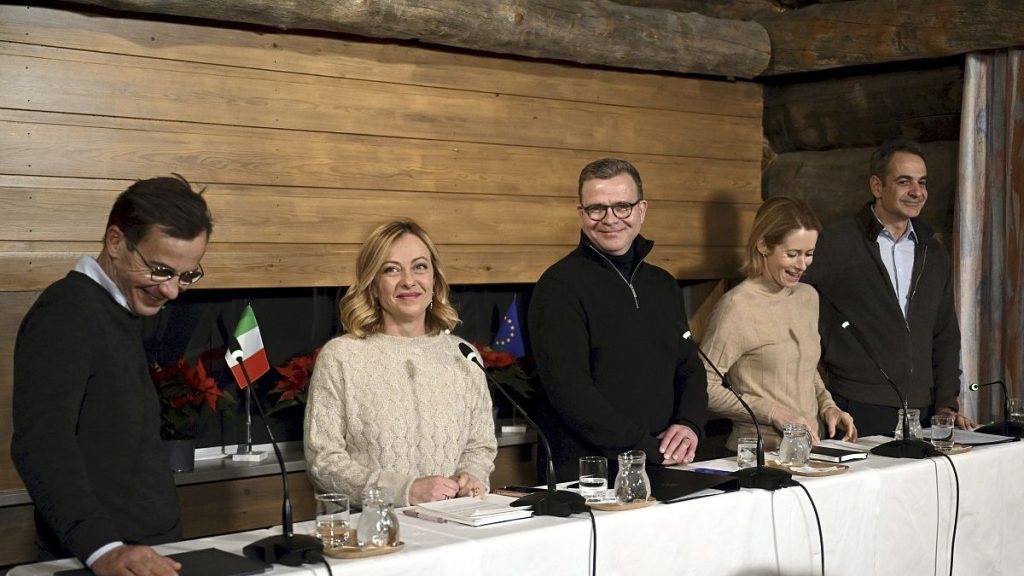The specter of a persistent Russian threat looms large over Europe, prompting leaders from northern and southern EU member states to convene in Inari, Finland, to address the urgent need for amplified investment in security. This meeting, held against the backdrop of the unique Sámi culture, underscored the shared concern across the continent about the evolving security landscape and the critical necessity for a unified and robust response. EU High Representative Kaja Kallas emphasized the importance of bolstering defense capabilities as a deterrent against potential conflict, stressing the need for increased investment in critical areas. While acknowledging the diverse security challenges faced by different regions within the EU, Kallas championed collective action as the key to effectively addressing these multifaceted threats emanating from Russia.
The call for increased defense spending finds support in recent data. The European Defence Agency’s 2023 report revealed a record €279 billion expenditure on defense across the EU member states, marking a 10% increase from the previous year and the ninth consecutive year of growth. This surge in spending reflects a growing awareness of the precarious security environment and a commitment to strengthening defense postures. Notably, the report highlighted a disparity in spending patterns, with countries bordering Russia, such as Poland, Estonia, and Latvia, allocating considerably higher percentages of their budgets to defense compared to other member states like Spain and Belgium. This disparity underscores the varying levels of perceived threat and the corresponding prioritization of defense resources.
The impending US presidential transition and the return of Donald Trump to the White House have injected a degree of uncertainty into the transatlantic partnership, particularly regarding the ongoing conflict in Ukraine. Trump’s campaign rhetoric, which advocated for a negotiated settlement with Russia and hinted at potential reductions in aid to Ukraine, has raised concerns among European allies. These anxieties are further compounded by Trump’s long-standing calls for NATO members to increase their defense spending to 5% of GDP, a demand that could strain the budgets of many European nations. However, recent statements from officials close to Trump suggest a potential continuation of military aid to Ukraine, offering a glimmer of hope for the maintenance of US support for the embattled nation.
The uncertainty surrounding Trump’s Ukraine policy dominated discussions at the Inari summit. Italian Prime Minister Giorgia Meloni cautioned against relying on pre-election rhetoric and stressed the importance of awaiting concrete policy decisions from the incoming administration. Meloni reiterated her commitment to supporting Ukraine, emphasizing that achieving peace requires steadfast resolve and continued assistance to Kyiv, reflecting a widespread sentiment among European leaders. The summit, therefore, served as a platform for reaffirming the commitment to a united front in support of Ukraine, despite the uncertainties posed by the changing political landscape in the United States.
The discussions in Inari highlight the complex interplay of geopolitical factors shaping European security. The looming Russian threat necessitates a collective European response, with increased defense spending identified as a crucial component of this strategy. However, the uneven distribution of defense spending across member states poses a challenge to achieving a cohesive and effective defense posture. Furthermore, the return of Donald Trump to the US presidency introduces an element of unpredictability regarding the future trajectory of US foreign policy, particularly concerning support for Ukraine. Despite these uncertainties, European leaders have expressed a determination to maintain a united front and continue supporting Ukraine, demonstrating a resolve to navigate the complex geopolitical landscape and safeguard European security.
The Inari summit, therefore, serves as a microcosm of the broader challenges confronting European security. The meeting underscored the need for sustained investment in defense, the importance of transatlantic cooperation, and the commitment to supporting Ukraine against Russian aggression. The discussions also brought to light the complexities of aligning national interests with collective security goals within the EU framework. Moving forward, European leaders must grapple with these challenges and work towards a more unified and robust security architecture capable of effectively addressing the evolving threats to the continent’s stability and peace. The summit in Inari marked a crucial step in this ongoing process, fostering dialogue and reinforcing the shared commitment to a secure and prosperous future for Europe.

